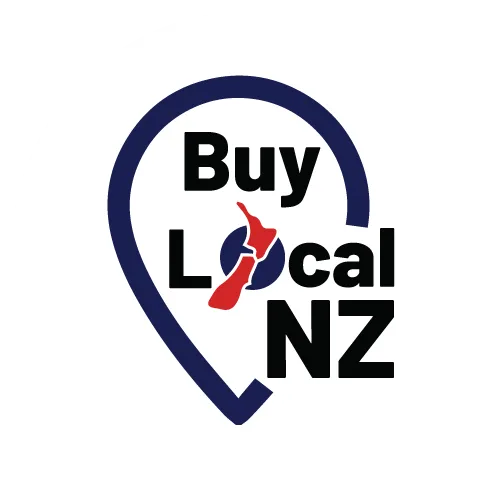
How to Master Keyword Research for Small Businesses
To master keyword research for your small business, you'll need to start by understanding your local search territory and your target audience's search habits. Use tools like Google Trends and social listening to identify valuable search terms, while analysing your competitors' keyword strategies can reveal untapped opportunities. Focus on location-specific terms and combine them with your primary keywords. Get ready to discover proven techniques that’ll transform your local SEO strategy.
Key Points
- Use tools like Google Trends and local forums to identify keywords that reflect how your community actually searches for services.
- Analyse competitor websites and content to uncover valuable keywords and identify gaps in the local market.
- Combine industry-specific terms with location markers like neighbourhoods and landmarks to improve local search visibility.
- Monitor customer reviews and social media conversations to discover natural language terms your target audience uses.
- Focus on specific, manageable keywords rather than competing for broad terms against larger businesses.
Understanding Your Local Search Territory
Three key elements shape your local search territory: your physical location, your service area, and your target audience's search habits.
Start by mapping out where your customers are coming from and where you want to reach them. Your local search footprint might extend beyond your postcode, especially if you serve multiple suburbs or towns.
Break free from generic keyword targeting by understanding how locals actually search. They might use suburb names, landmarks, or local terminology that outsiders wouldn't know.
Track these location-specific patterns and incorporate them into your strategy. Remember that mobile searches often include "near me" phrases, so optimise accordingly.
Your success depends on matching your keyword strategy to the real-world behaviour of your community, not just following standard SEO formulas.
Tools and Techniques for Finding Local Keywords
While online keyword research tools dominate the SEO landscape, local businesses need a mix of digital and traditional methods to uncover valuable location-based keywords. You'll find freedom from expensive software by combining keyword suggestion tools with grassroots local SEO techniques.
| Tool Type | Purpose | Best For |
|---|---|---|
| Google Trends | Geographic insights | Regional demand |
| Local Forums | Community language | Customer terms |
| Chamber Lists | Business categories | Industry terms |
| Social Listening | Real conversations | Pain points |
| Review Mining | Customer feedback | Service needs |
Break free from generic keyword lists by exploring your community's actual search behaviour. Monitor your competitors' local directories, analyse neighbourhood social media groups, and leverage free tools like Google's Keyword Planner with location filters. You'll discover keywords that better connect with your local audience.
Analysing Competitor Keywords in Your Area
Understanding your local competitors' keyword strategies can reveal untapped opportunities for your business. By conducting thorough competitor analysis, you'll discover which search terms drive traffic to their websites and identify gaps in their targeting that you can exploit.
Start by examining your top three local competitors' websites and noting which keywords they consistently use in their content, meta descriptions, and headings. Tools like Semrush or Ahrefs can help you uncover their most valuable search terms.
Study your local rivals' sites for their top keywords across content, meta descriptions, and headings using SEO tools like Semrush.
Pay attention to market trends and seasonal variations in their keyword usage.
Don't just copy their approach - look for underserved niches and unique angles that set your business apart. Focus on keywords where competition is manageable but search volume is sufficient to drive meaningful traffic to your site.
Implementing Location-Specific Search Terms
Since local customers often search using geographic terms, incorporating location-specific keywords into your content can significantly boost your visibility in regional search results.
By mastering local SEO, you'll break free from the limitations of generic search terms and connect directly with your community. Location optimisation isn't just about adding your city name - it's about understanding how your neighbours search.
- Combine your primary keywords with neighbourhood names, districts, and landmarks.
- Include nearby cities and towns where you'd like to attract customers.
- Add location-specific terms to your meta descriptions, title tags, and header tags.
- Create separate landing pages for each service area, incorporating unique local content.
Don't limit yourself to traditional boundaries - expand your reach strategically while maintaining relevance to your target areas.
FAQs
How Often Should I Update My Keyword List for My Small Business?
Review your keyword list monthly to stay ahead of keyword trends and track competitor analysis. You'll want to adjust quarterly for seasonal changes and market shifts that impact your business's visibility.
What's the Ideal Keyword Density for My Website Content?
Don't get hung up on exact keyword density percentages. Focus on natural keyword placement that serves your readers first. For content optimisation that converts, aim for roughly 1-2% density while keeping your writing authentic.
Should I Focus on Short-Tail or Long-Tail Keywords for My Business?
You'll want to focus on both. Short tail advantages include a broader reach and higher volume, while long tail benefits give you targeted traffic and less competition. Start with long-tail and expand gradually.
How Many Keywords Should I Target for Each Webpage?
Like stars in a constellation, your webpage should shine with 2-5 primary keywords and 3-7 secondary ones. Balance your keyword variety to connect with your target audience without overwhelming them.
Can I Use the Same Keywords Across Multiple Business Locations?
You can use similar keywords across locations, but customise your location strategy with city-specific keyword variations. This empowers you to target local audiences while maintaining your core message effectively.
In Summary
Now that you've got these keyword research strategies under your belt, you're ready to climb the local search mountain. Remember to regularly review and refine your keyword choices as your market evolves. By combining competitor analysis, location-specific terms, and the right research tools, you'll build a foundation that helps your small business shine in local search results. Keep testing and adjusting until you find your sweet spot.

